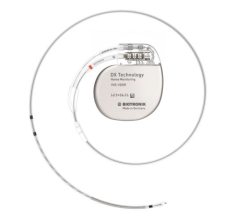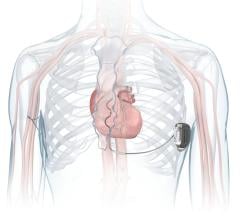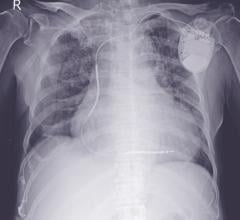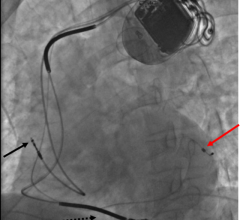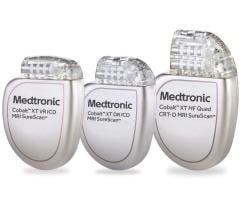September 6, 2007 - While few complications were found last year with implantable cardioverter defibrillators (ICDs), 15 percent of implanting physicians had no formal training with the medical procedure, according to first-year data from the National ICD Registry.
The registry, found on the Heart Rhythm Society Web site, is the nation’s first comprehensive database of detailed information about patients with the implantable medical devices. An analysis of the data revealed that complications at the time of device implantation and prior to hospital discharge occurred at a 3.6 percent rate in the more than 108,000 ICD implantations at 1,117 hospitals. Adverse events included hematomas (1.2 percent), lead dislodgement (1.0 percent) and death (0.02 percent).
The first-year data also showed that 15 percent of the 3,249 physicians who implanted ICDs in 2006 had no formal training in device implantation. Formal training consists of the completion of an EP fellowship and CCEP boards, EP fellowship only, thoracic/cardiac surgery residency, pediatric EP fellowship or Heart Rhythm Society clinical competency standards for ICD and CRT implantation. These physicians accounted for six percent of all implants captured by the registry last year.
“To continue to ensure patient safety, we need to make sure that specially trained physicians are performing these procedures,” said Stephen Hammill, M.D., FHRS, chair of the ICD Registry Steering Committee and past president of the Heart Rhythm Society. To this end, the Heart Rhythm Society established an alternate training pathway in 2004 consisting of rigorous clinical competency standards for physicians not certified in electrophysiology to help them gain the proper experience and knowledge before implanting ICD and CRT devices.
The first-year data also provided an overview of who is receiving the medical devices. The average patient is 68 years of age, white (83 percent) and male (74 percent). Medicare beneficiaries represented 70 percent of patients last year.
The registry is developing a Longitudinal study to capture device-firing data and will subsequently be combined with Medicare claims data to record complications that may occur after discharge such as infection and lead dislodgement.
For more information: www.hrsonline.org/Policy/ICDRegistry


 January 13, 2026
January 13, 2026 


